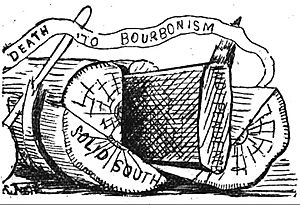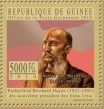Henry M. Mathews facts for kids
Quick facts for kids
Henry M. Mathews
|
|
|---|---|
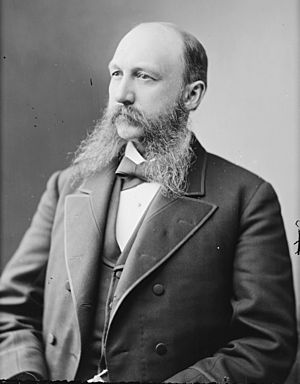 |
|
| 5th Governor of West Virginia | |
| In office March 4, 1877 – March 4, 1881 |
|
| Preceded by | John J. Jacob |
| Succeeded by | Jacob B. Jackson |
| 7th Attorney General of West Virginia | |
| In office 1873–1877 |
|
| Governor | John J. Jacob |
| Preceded by | Joseph Sprigg |
| Succeeded by | Robert White |
| Personal details | |
| Born | March 29, 1834 Frankford, Virginia (now West Virginia) |
| Died | April 28, 1884 (aged 50) Lewisburg, West Virginia |
| Political party | Democratic |
| Spouse | Lucy Fry Mathews |
| Parents |
|
| Relatives | Mathews family |
| Alma mater | University of Virginia A.B. 1856 B.L. 1857 |
| Profession | Politician |
| Military service | |
| Allegiance | |
| Branch/service | |
| Years of service | 1861–1864 |
| Rank | |
Henry Mason Mathews (March 29, 1834 – April 28, 1884) was an American soldier, lawyer, and politician from West Virginia. He served as the 7th Attorney General of West Virginia from 1873 to 1877. Later, he became the 5th Governor of West Virginia from 1877 to 1881. He was the first former Confederate soldier to be elected as a governor in the United States.
Born into a well-known political family in Virginia, Mathews worked as a lawyer before the American Civil War. When Virginia left the United States in 1861, he joined the Confederate States Army. He served as a major of artillery in the western part of the war. After the war, Mathews was elected to the West Virginia Senate. However, he was not allowed to take his seat because of state rules against former Confederates.
He helped create the 1872 West Virginia State Constitution. This new constitution removed the restrictions for former Confederates. After this, he was elected Attorney General of West Virginia. After one term, he became the governor. Mathews was known for appointing people from both political parties to important jobs. This made his time as governor a period of "good feelings."
His time as governor faced challenges from a tough economic period called the Long Depression. A major event was the Great Railroad Strike of 1877 in Martinsburg, West Virginia. This strike happened because workers protested against wage cuts. Mathews asked President Rutherford B. Hayes for help. This brought national attention to the strike, which then spread to other states. It became the first nationwide labor strike in U.S. history.
| Top - 0-9 A B C D E F G H I J K L M N O P Q R S T U V W X Y Z |
Early Life and Education
Henry Mason Mathews was born on March 29, 1834, in Frankford, Virginia. This area is now part of West Virginia. His parents were Eliza Shore (née Reynolds) and Mason Mathews. His father was a member of the Virginia House of Delegates. His family had been important in politics in western Virginia since the early 1700s.
Mathews went to Lewisburg Academy for his early schooling. Then, he attended the University of Virginia. He earned a Bachelor of Arts degree in 1855 and a Master of Arts degree in 1856. He was also a member of the Beta Theta Pi club.
After college, Mathews studied law at Lexington Law School. He graduated in 1857 with a Bachelor of Laws degree. That same year, he became a lawyer. He opened a law office in Lewisburg with his younger brother, Alexander F. Mathews. He also taught Language and Literature at Alleghany College.
In 1857, when he was 22, Mathews married Lucy Fry Mathews. They had five children together. Mathews became involved in public life before the Civil War. He supported John C. Breckinridge in the 1860 presidential election. Even though his home county was against it, Virginia decided to leave the United States. Mathews said he wanted to keep the Union together.
Military Service in the Civil War
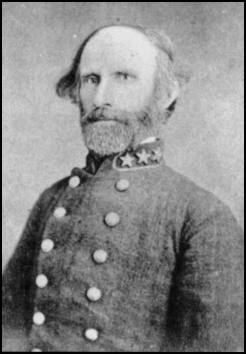
Even though Henry Mathews did not want Virginia to leave the Union, he followed his home state when it joined the Confederate States of America in May 1861. Mathews and his two brothers joined the Confederate States Army (CSA) as private soldiers.
Mathews was assigned to the team of Brigadier General Henry Wise. In 1863, Henry Mathews moved to the team of his uncle, Brig. Gen. Alexander W. Reynolds. He was promoted to major of artillery. He was with the generals during the Vicksburg Campaign.
Later in 1864, Mathews was briefly arrested due to a misunderstanding about an order. He explained what happened to General Robert E. Lee, who then dropped the charges. By the end of 1864, Mathews was tired of the war and left the Confederate States Army.
Political Career
Rising in Politics
Even while he was fighting in the war, Mathews gained a good reputation in his home state. After the war, the Republican party was in charge of West Virginia. However, Mathews, a Democrat, was elected to the West Virginia Senate in 1865. He was not allowed to serve because a rule stopped former Confederates from holding public office.
As more Democrats gained support, state Republicans changed the West Virginia State Constitution. This change allowed former Confederates to have their state rights back. This was meant to attract voters, but it helped the Democratic party take control of the government.
Mathews was chosen as a Democratic representative for the Constitutional Convention of 1872. This meeting was held to rewrite the state constitution. Being part of this helped him become more important in state politics. The next year, in 1873, Mathews was elected as the 7th attorney general of West Virginia. He served one term and became very popular within his party.
After his term as attorney general, Mathews ran for governor. He easily defeated the Republican candidate, Nathan Goff, by 15,000 votes. This was the biggest win for a governor in West Virginia at that time. So, on March 4, 1877, Mathews became the 5th governor of West Virginia. He was the first former Confederate soldier in the United States to be elected governor. Mathews' ideas, which supported businesses and were more traditional, fit with a movement called the Bourbon Democratic movement that was growing in the South.
Governor of West Virginia
When Mathews became governor, he talked about bringing people together after the war. He promised that political parties would stop fighting about past issues. He said, "We have stopped looking back sadly... and have moved forward to the important issues of today." People across the state liked his speech. Even a Republican newspaper praised his "honest and open speech." Mathews' inauguration was a big event with "flowers and flags and music," which set a new tradition for future governors.
When he chose his team of advisors, called his cabinet, Mathews wanted "perfect peace." He did something unusual for the time: he appointed members from both the Republican and Democratic parties to his cabinet.
The Great Railroad Strike of 1877
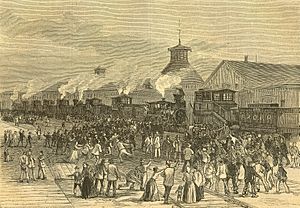
When Mathews took office, the state was facing economic problems from a period called the Long Depression. In July 1877, just four months into his term, he learned that Baltimore and Ohio Railroad (B&O) workers in Martinsburg, West Virginia, were stopping trains. They were protesting against cuts to their wages.
Mathews called on the local militia to stop the protest. But many of the militia members were railroad workers themselves or supported the strike. They did not act strongly. During the confusion, a striker was shot and killed. Local newspapers blamed Mathews for the death. The militia then told Mathews they would not follow his orders.
Mathews sent another militia group, making sure there were no rail workers among them. But this group also refused to act against the strikers. Finally, Mathews asked President Rutherford B. Hayes for federal troops. Mathews' decision to ask for federal help brought a lot of national attention to the strikes. Local newspapers criticized him for calling the strikes an "insurrection" instead of an act of desperation. However, historians today often see federal involvement as something that was bound to happen.
President Hayes had said he would not get the federal government involved in local matters. But after talks failed, he sent federal troops to Martinsburg. By this time, the strike, known as the Great Railroad Strike of 1877, had become peaceful in Martinsburg. However, violence spread to other states like Maryland, Pennsylvania, Illinois, and Missouri. The strike gained a lot of support across the country.
In 1880, Mathews had to send the militia again. This time it was to Hawks Nest, Fayette County. He sent them to stop the state's first big coal strike. Miners there were being threatened to stop working by a rival group.
Moving the State Capital
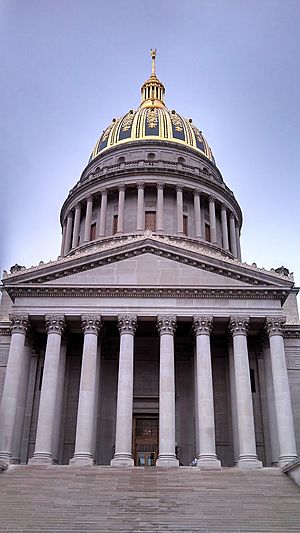
From 1863, when West Virginia was formed, until 1875, the state capital moved between Wheeling and Charleston. Its location often depended on which political party was in power. Republicans usually preferred Wheeling, and Democrats preferred Charleston.
Early in Mathews' time as governor, a vote was held to decide a permanent location for the capital. Three choices were given: Charleston, Clarksburg, and Martinsurg. Wheeling was not an option to vote for. During the campaign, Democrats asked a young Booker T. Washington to speak and encourage African American voters to support Charleston. Charleston won the vote, and it has been the state capital ever since.
State Debt and Money
During Mathews' time as governor, there were ongoing questions about how much money West Virginia owed to Virginia. This issue came up when West Virginia was created in 1863. Both states agreed that money was owed, but they could not agree on the exact amount. Virginia claimed West Virginia should pay about one-third of the debt from January 1, 1861. This meant West Virginia owed over $950,000. Mathews' advisors thought the amount should be much lower, around $525,000.
Because the numbers were unclear and the issue had become political, Mathews decided to delay a final decision. His successor, Jacob B. Jackson, also delayed the matter. The argument about the debt continued for many years and was not settled until 1939.
During Mathews' time, Attorney General Robert White won a case in the United States Supreme Court. This decision allowed the state to collect taxes from the growing railroad industry. Before this, railroads had not paid taxes to West Virginia. This decision brought thousands of dollars into the state's treasury.
Views on Race and Equality
Before the Civil War, western Virginia had fewer enslaved people compared to the eastern part of the state. Mathews' family was among those who enslaved people in western Virginia.
Mathews was part of several local political groups that made statements against racial equality both before and after the Civil War. He also helped write the 1872 West Virginia Constitution. This constitution stated that "White and colored persons shall not be taught in the same school." Historians say that believing in "the necessity of racial stratification" was a common view for many white Southerners and even some Northerners at that time.
Mathews was seen as a "Redeemer." This was a group of Southern Democrats who wanted to regain political control after the Civil War. They often worked to bring back white supremacy in the South. However, some historians argue that West Virginia's "Bourbon Democrats," including Mathews, were more flexible. They were willing to accept the 13th, 14th, and 15th amendments to the U.S. Constitution. These amendments gave freedom, citizenship, and voting rights to formerly enslaved people.
From 1865 to 1957, West Virginia passed eleven Jim Crow laws under Democratic leadership. None of these laws were passed during Mathews' time as governor (1877-1881). In 1881, after a Supreme Court case called Strauder v. West Virginia, Mathews changed a 1873 state law. This law had stopped African Americans from serving on juries. Mathews' action allowed them to serve.
Later Life and Legacy
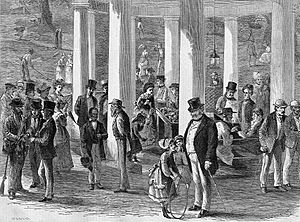
Mathews left politics in 1881 and went back to his law practice. He also became the president of the White Sulfur Springs Company. This company is now known as The Greenbrier resort. The resort became a popular place for people from both the North and South to visit after the war. It was also where many important post-war meetings happened.
Henry M. Mathews died suddenly on April 28, 1884. He is buried in the Old Stone Church cemetery in Lewisburg, West Virginia.
In his policies, Mathews was a strong "Bourbon Democrat." He created a state office to attract new workers to West Virginia. He also helped expand the coal and oil industries, improved transportation, and funded a state study of its geology.
Historian James Callahan described him as "a patriotic, broad, and liberal minded ex-Confederate." He said Mathews had fully accepted the results of the Civil War and was well-suited to lead the state. Mathews' time as governor is often called "an era of good feeling." This is because he appointed Republicans to government jobs even though he was a Democrat.
Another West Virginia Governor, William A. MacCorkle, said Mathews was a great speaker. He said Mathews' speeches were "easy, smooth, perfectly balanced," and that he could make a wonderful impression on an educated audience.
Images for kids
 | Kyle Baker |
 | Joseph Yoakum |
 | Laura Wheeler Waring |
 | Henry Ossawa Tanner |


